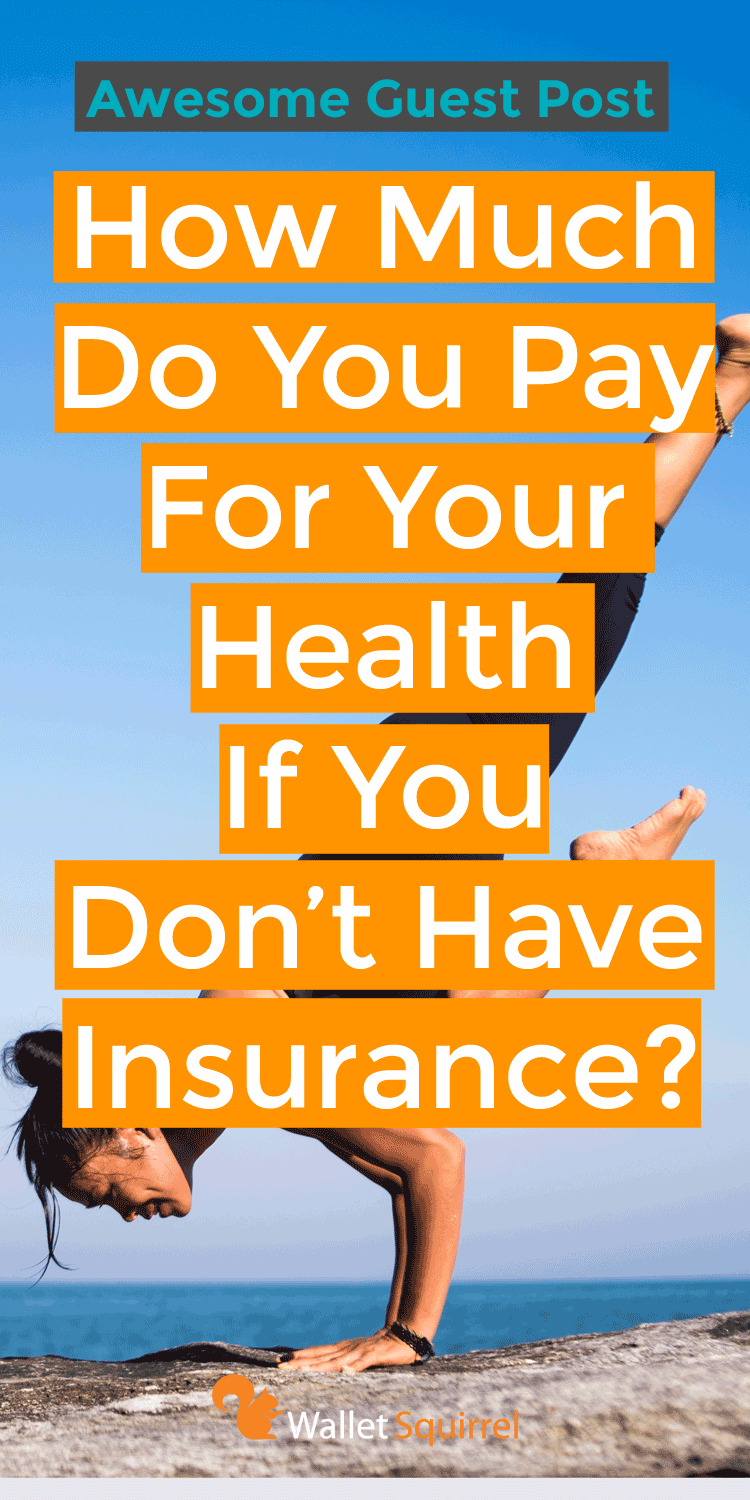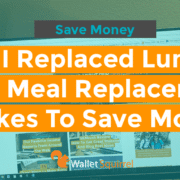How Much Do You Pay For Your Health If You Don’t Have Insurance
The following is a guest post by Wendy of You The N
Health Insurance Considerations
The best way to safeguard yourself in a way which helps you to fully flourish is through proper diet and exercise. But even if you’re always on top of things in that regard, emergencies can injure you just as surely as illnesses can take you. There are recessive genetic problems which can arise, cancers that can come from the environment, and communicable diseases virtually everywhere.
It’s possible to avoid them, it’s possible to fortify your body against them, but these things aren’t always going to be avoidable. Especially if you’re the head of a household, or you’ve got children, it makes sense to get a healthcare solution. But this has gotten difficult in recent years. Though the “Affordable Care Act, ACA”, or Obamacare as it’s more widely known, was supposed to reduce the cost of health insurance, this didn’t end up being the case for everyone.
In many cases, health insurance premiums grew substantially. This has prompted many to seek other options. Sometimes they exist, sometimes they don’t. Single individuals have by and large been opting out, but this can be a bad idea.

Pragmatic Considerations
The question, “Do I need to pay the Obamacare penalty for being uninsured?” is a complicated one; consider what Healthcare.com says: “People who go more than three full, consecutive months without health insurance coverage are required to pay a tax penalty for that year. (Note: If you have health insurance for only one day of a month, it doesn’t count as a month without health insurance.)”
Technically, you may be able to avoid the penalty by having two months and a day of insurance; but probably not. Still, if you’re below $24k in yearly income, you likely won’t be penalized due to your lack of resources. If you’re doing reasonably well, however, you can expect a penalty between $600 and $2,000. The number of people in your household can be an influence in what you pay.
So from the beginning, opting out of a health insurance solution is going to cost you money in a legal sense; at least through the end of this year. But then you’ve got other collateral considerations. Say you cut yourself and need stitches. You may have to go to an Urgent Care facility, and you may find that they charge you more than you’d have to pay with the right insurance.
What happens if you’re in an automobile accident and get severely injured? Depending on who is or was at fault, you may end up having to foot the bill—and it can balloon into the hundreds of thousands of dollars very quickly. So if you haven’t acquired healthcare coverage yet this year, you’ve got until the 1st of October to do so. If you can source it cheap enough, you’ll save yourself a few hundred dollars. But if you can’t, then paying the penalty could be your cheapest option. Still, going without healthcare can be a risky proposition in modern times.

Difficult Decisions
Ultimately, you’ll have to decide for yourself how safe you feel without a healthcare solution. Some things can affect you in a way you didn’t expect—technology, for example, has a somewhat adverse effect on mental health. If you don’t have coverage, getting the help you need may be too costly, and it could really impact your life.
On the other hand, some nomads never have health care a day in their lives, and still, manage to live longer than anyone expects. There’s always that old guy with one eye, a limp, scars all over the place and a missing limb who goes by “Lucky”. Insurance helps make daily life less of a gamble. With tax penalties hiding around the corner, getting covered may be a cheaper option for you, too.
Special COVID-19 Update:
No one plans to get sick. It’s not something that’s at the forefront of our minds, but it helps to take steps to prepare for the unknown, just in case something like the COVID-19 pandemic happens. The coronavirus outbreak has brought up more questions than answers — but one thing we know is that it’s a good time to put measures in place to protect yourself and your family.
The CDC and WHO have given us precautions to avoid contracting and transmitting COVID-19, such as practicing good hygiene and following government guidelines on social distancing — two things that are proven to slow down the spread of the virus.
Aside from those, you might want to proactively look into life insurance, especially if you have a family or assets to protect, or debt that might be passed on to others if you die. With some policies, you can opt into “living benefits,” such as a long-term care or accelerated death rider. If you meet the criteria, these riders allow you to access your policy’s payout early to cover medical expenses. – Katia Iervasi, Insurance Writer, Finder.com










Thankfully I’m covered on quality affordable health insurance that I don’t have to pay for. This way, Uncle Sam can’t him me up when I go to file my taxes.
Wallet Squirrel,thank you ever so for you post.Much thanks again.
Improving your health won’t really cost a thing if you have a willing mindset to turn around and make healthy changes. It stars with a conceived thought. Putting that thought into action. And start by doing small stints of cardio in the morning, whether its walking at your local park, going to the gym and hitting the treadmill, and prepping your food before starting your day.